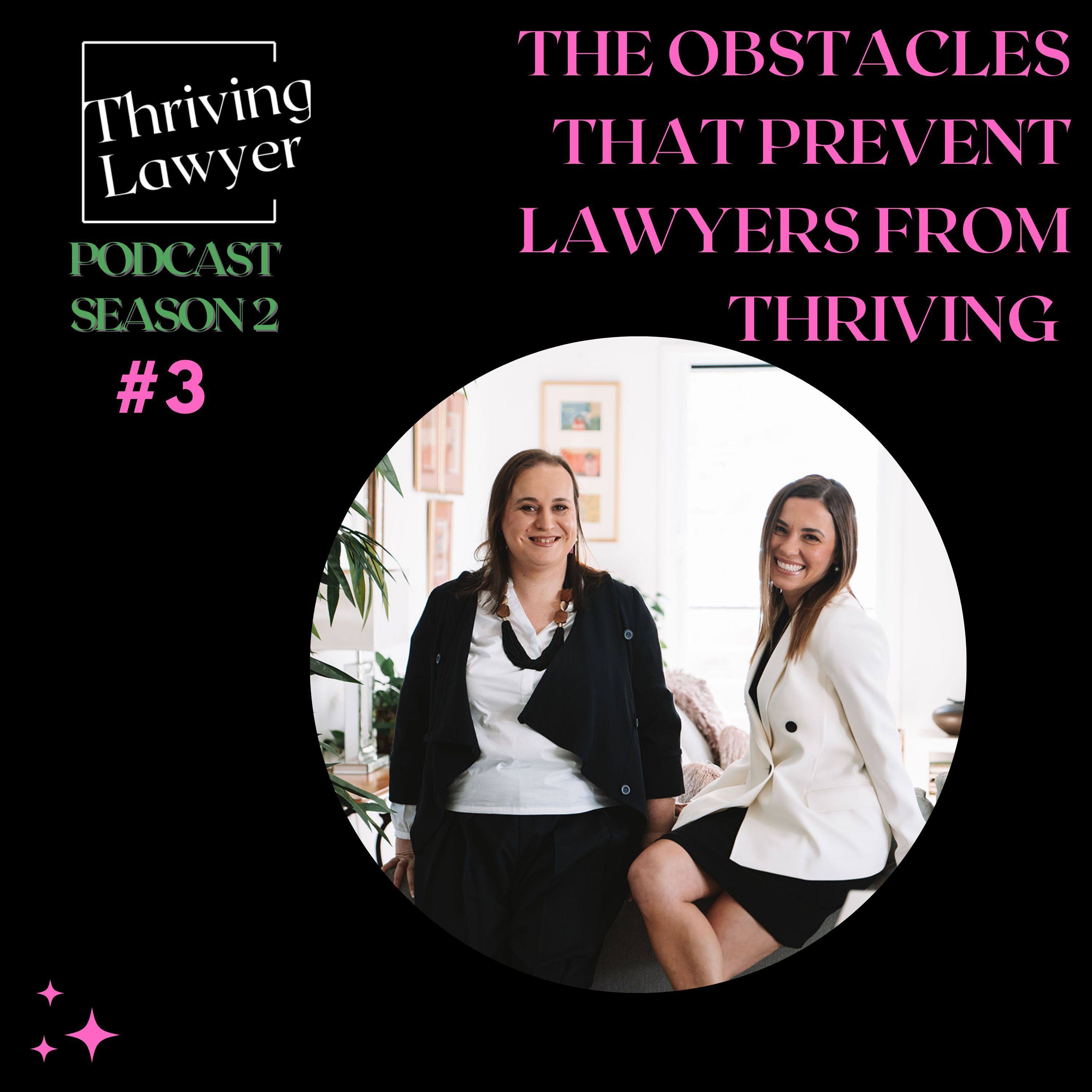The Hidden Obstacles that keep lawyers from Thriving: Breaking Free
Feb 19, 2025
Its no secret that as lawyers, our success often comes with hidden costs. Languishing or worse. Burnout. Stress. Excessive work hours. Exhaustion.
There are certainly cultural issues in the profession - notwithstanding the changes have occurred over the last few years, at least in the Australian legal sector.
Issues like the culture of long work hours and ultra-competitiveness.
We're certainly not for a moment suggest that individual lawyers can individually address all these obstacles.
However, we do have agency over how we show up - and how we engage.
In this blog we explore several key obstacles, and explore how can address them.
Some of the challenges are those that all white collar professionals experience.
But there are also specific issues about how we are trained as lawyers that can, whilst useful in being a lawyer, can ultimately undermine our wellbeing and prevent us from thriving.
That is, the very traits that make us effective as lawyers, can sometimes get in the way.
The Doing Obsession
In this blog, we want to focus first on what performance expert Brad Stulberg dubbed the 'Doing Obsession' in his book The Practice of Groundedness. This is common in Western culture, particularly in the US, but I think it is fair to say a lot of lawyers are prone to it.
The obsession manifests as a cultural tendency to value busyness for its own sake, where being constantly occupied becomes a status symbol. In the legal profession, this translates to excessive hours, constant availability, and a relentless drive that can lead to burnout.
The Buddhist concept of the "hungry ghost" perfectly illustrates this phenomenon - always consuming, never satisfied. Many lawyers find themselves trapped in this cycle, chasing the next achievement while never feeling fulfilled.
The Pessimism Paradox
Martin Seligman, the father of positive psychology, identified a unique challenge in his seminal article "Why Lawyers are Unhappy": lawyers are selected and trained for their pessimism.
This trait serves us well in identifying legal risks and protecting clients, it can become problematic when (mis)applied in the rest of our lives. We start seeing risks everywhere, and when this mindset seeps into other areas of life, it can prevent us from embracing opportunities for growth and change.
The challenge lies in knowing when to apply this professional skepticism and when to set it aside.
The Perfectionism Trap
Another key obstacle is perfectionism. In a profession where attention to detail is paramount, and perfectionism is rewarded, the drive for perfection can become overwhelming.
While high standards are important, perfectionism can lead to languishing or worse.
We can spend excessive time on tasks, staying back very late to perfect an advice, where despite the edits the value to the client is not meaningfully improved.
It can lead to constant stress and anxiety - we never feel like we are doing good enough.
Breaking Free
Do any of these obstacles show up for you? If so, how? It can be really helpful to take the time and consider if any of these obstacles show up for you, and if so how and when.
Take time to understand what is happening. For example, if your biggest obstacle is the doing obsession, consider why. What are you trying to achieve by staying so busy? Is it really serving you?
Create intentional boundaries around your time. Consider what you need to reconnect to and what would be most helpful to you to break free from the doing cycle.
Perhaps it is taking breaks.
Once you understand what you need, you can start prioritising more effectively and so that you pay more attention to what is important and let go of the rest.
What can you delegate? What can you stop?
How are you recovering, going at a million miles per hour?
If you have decided that you wanted to slow down, what does that slow down look like? How do you make rest and enjoyable activities a non negotiable as part of your routine?
Consider how you need to think differently to support yourself - for example, if you misapply pessimism where it has no business being, how can you adopt a different approach when you catch yourself?
Approach your experimentation with a learning mindset and self-compassion.
And remember, if you're feeling overwhelmed by some of the obstacles we've discussed, know that you are not alone and it's okay to start small. You don't have to tackle everything at once. Just pick one thing. Don't overwhelm yourself.
It could be setting a boundary. It could be letting go of perfection in a single task. Just experiment with what it's like to do that and how you feel.
Or maybe carve out 10 minutes a day just for yourself and focus on that. Give yourself permission to take it slow. But reflect. Identify. And just try something different.
It could be really simple and it doesn't have to take a lot of time, but from small things and small changes, big things can grow. The goal isn't perfection - it's progress toward a more sustainable and satisfying way of practicing law - and life!
GET YOUR FREE LAWYER'S GUIDE TO THRIVING IN 2025: A sustainable Roadmap for success
Thrive as a Lawyer, at work and in the rest of your life.
We hate SPAM. We will never sell your information, for any reason.

